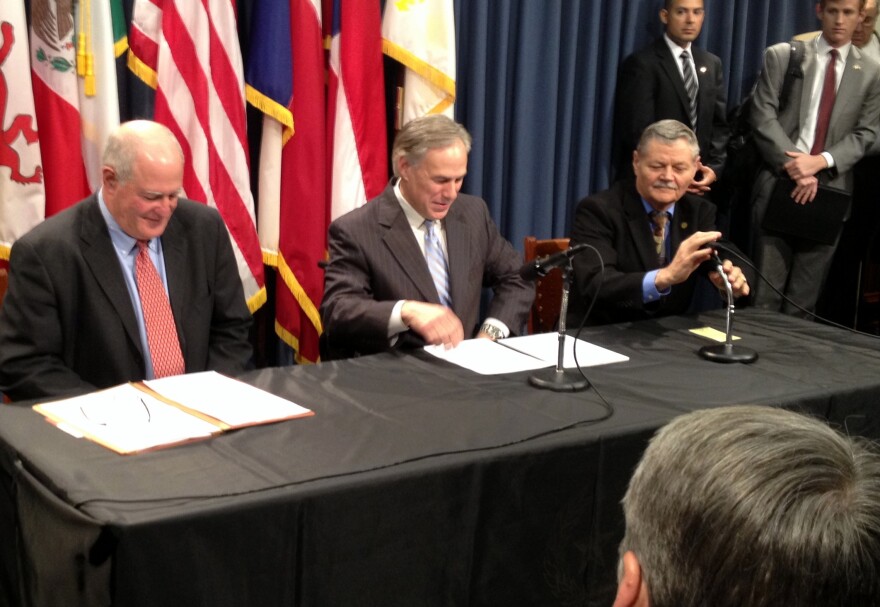Texas Attorney General Greg Abbott announced a "Workers Bill of Rights" this morning at the Capitol. The document outlines the rights of Texas workers, including the ability to abstain from union membership and paying union dues.
Abbott also took the occasion to promote House Bill 1524, a bill that would allow Texas workers to have "secret ballots" in union votes, saying that the privacy would allow workers to express opinions without any possible union interference or coercion from union leadership.
"This kind of intimidation is something that we’ve observed in other states, and we want to make sure that Texas doesn’t fall victim to some of the abuses that have occurred in other states," Abbott said. "[W]hat this legislation does and what this bill of rights does is to further promote the rights and protections that are guaranteed to workers in the state of Texas.”
State Rep. Charles "Doc" Anderson, the bill's author, said that the legislation will protect employees from intimidation. He also said the ability to participate in union decision-making free of influence was "sacrosanct" for Texas workers.
Texas AFL-CIO President Becky Moeller said that the bill seeks to solve a non-existent problem: that as Texas is already a "right-to-work" state, employees aren't coerced into paying dues, joining unions, or involuntarily towing union lines.
"It is an effort to intimidate workers. That is where the intimidation is coming from, not from the unions," Moeller said. "The intimidation is coming from the Attorney General’s office, who is telling you there is a problem, when there is not a problem.
Moeller said that employees in Texas do not have to sign union membership dues cards to avoid termination and that independent employee contracts can be negotiated without joining a union. Moeller added that state "intimidation" of unions would hurt working class families.
State Sen. Kel Seliger authored a companion bill in the upper chamber. He said that the legislation will not affect how unions currently function and said that the notion that the bill was "anti-union" was "absolutely false."
"This does not abridge the rights of a union whatsoever – to organize and to get an election held," Seliger said. "But [it] ensures that that action will be held by an election and that the ballots – as is the American tradition – will be private ballots."
Abbott's record of union battles goes back to 2007, when he filed suit against a national union in Corpus Christi for violating Texas collective bargaining laws.



